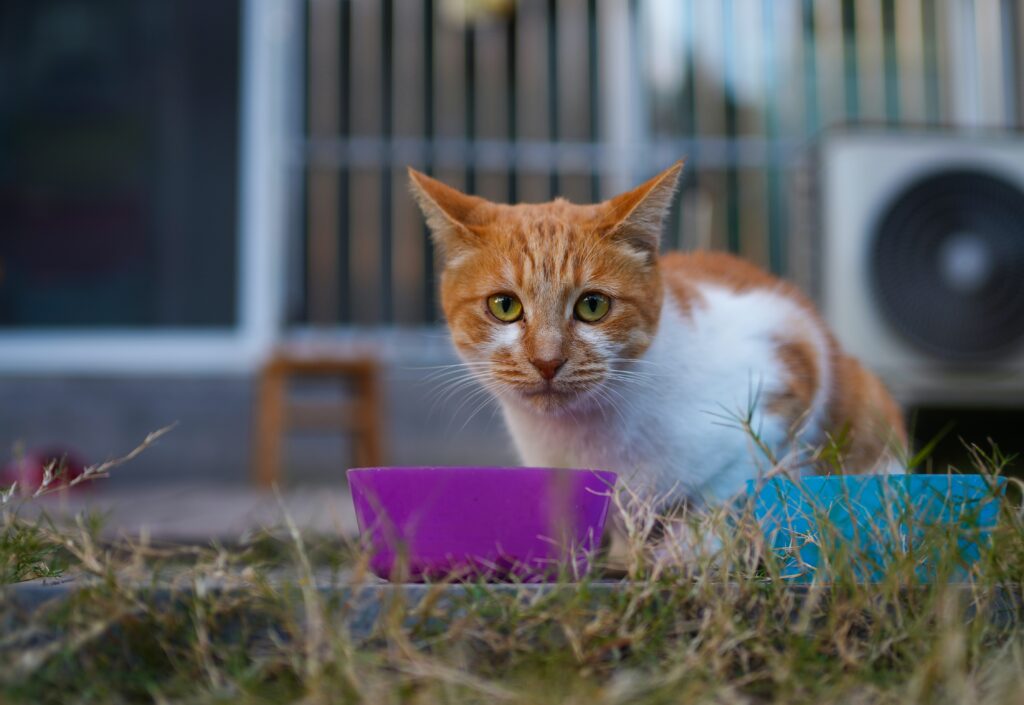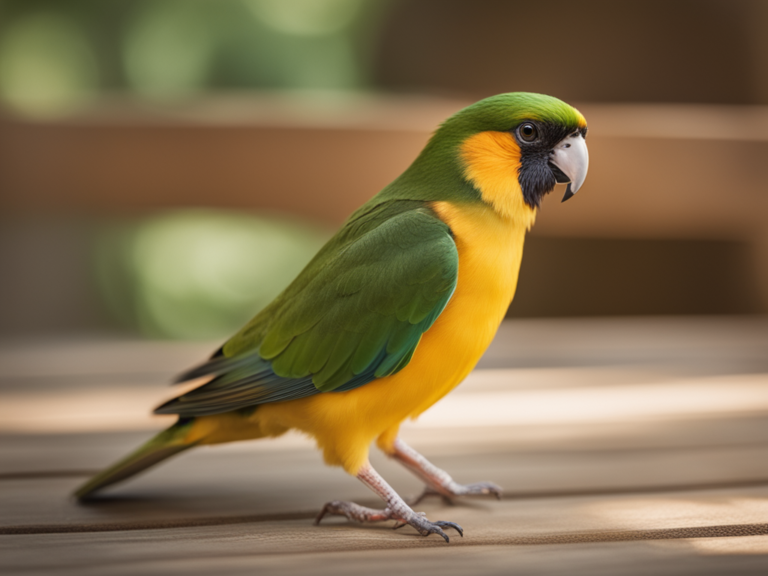Balanced Nutrition for Pet Cats

Balanced Nutrition for Pet Cats: Are you looking to provide your pet cat with the best possible nutrition? Balanced nutrition is essential to ensure your cat’s overall health and well-being. Cats, just like humans, require a combination of nutrients to thrive. From proteins to fats, carbohydrates to vitamins and minerals, each nutrient plays a vital role in your cat’s diet.
By understanding the importance of balanced nutrition and providing a diet that meets their specific needs, you can help your cat live a long and healthy life. In this guide, we will explore the essential nutrients for cats and provide tips on how to ensure a complete and balanced diet for your furry friend. So, let’s dive in and discover the key to optimal feline nutrition!
The Importance of Balanced Nutrition
To ensure the optimal health and well-being of your pet cat, you must understand the importance of providing them with balanced nutrition. Just like humans, cats require a diverse range of nutrients to support their bodily functions and maintain overall health. One crucial aspect of balanced nutrition for cats is hydration. Adequate water intake is vital for cats to stay hydrated and prevent dehydration, which can lead to various health issues. Providing your cat with access to fresh, clean water at all times is crucial for their well-being.
In addition to hydration, another important aspect of balanced cat nutrition is the inclusion of antioxidants in their diet. Antioxidants play a crucial role in maintaining the overall health of your cat. They help combat the damaging effects of free radicals in the body, which can lead to cell damage and contribute to the development of various diseases. Antioxidants also support a strong immune system, helping your cat fight off infections and diseases more effectively.
To ensure your cat receives an adequate amount of antioxidants, it is important to provide them with a diet that includes foods rich in these beneficial compounds. Some excellent sources of antioxidants for cats include fruits such as blueberries and cranberries, as well as vegetables like spinach and kale. Additionally, commercial cat foods formulated with added antioxidants can also be beneficial for your pet’s health.
Essential Nutrients for Cats
To ensure your cat’s health and well-being, it is important to provide them with essential nutrients. Three key nutrients that cats need are protein, omega-3 fatty acids, and taurine. Protein is crucial for maintaining muscle health, omega-3 fatty acids promote a healthy coat, and taurine is essential for heart health. By including these nutrients in your cat’s diet, you can help them thrive and live a long, happy life.
Protein for Muscle Health
You should regularly provide your cat with a high-protein diet to promote optimal muscle health. Protein is essential for cats as it aids in muscle building and repair. Here are four muscle-building foods that you can include in your cat’s protein-rich diet:
- Meat: Cats are obligate carnivores, meaning they require meat for their nutritional needs. Chicken, turkey, and beef are excellent sources of high-quality protein.
- Fish: Fish such as salmon and tuna are not only rich in protein but also provide omega-3 fatty acids, which support muscle health and promote a shiny coat.
- Eggs: Eggs are a complete source of protein and can be a valuable addition to your cat’s diet. Make sure they are cooked thoroughly to avoid any risk of salmonella.
- Dairy products: Some cats can tolerate small amounts of dairy products like cottage cheese or plain yogurt, which can provide additional protein.
Remember to consult your veterinarian to determine the appropriate amount of protein for your cat’s individual needs.
Omega-3 for Coat
Include omega-3 fatty acids in your cat’s diet to promote a healthy and shiny coat. Omega-3 fatty acids are essential nutrients for cats, providing numerous benefits for their overall health. When it comes to their coat, omega-3 fatty acids play a crucial role in maintaining their health and appearance. These fatty acids help reduce inflammation, keeping the skin healthy and preventing dryness and itchiness.
Additionally, omega-3 fatty acids contribute to the production of natural oils that keep the coat moisturized and shiny. The best sources of omega-3 for cats include fish oil, such as salmon or sardines, as well as flaxseed oil. These oils are rich in the omega-3 fatty acids EPA and DHA, which are highly beneficial for your cat’s coat and overall well-being. Ensure your cat’s diet includes these essential nutrients for a lustrous and healthy coat.
Taurine for Heart Health
For optimal heart health in your cat, it is important to ensure their diet includes an essential nutrient called taurine. Taurine is crucial for proper heart function and overall well-being in cats. Here are four important facts about taurine and its role in supporting your cat’s heart health:
- Taurine is an amino acid that cats cannot produce in sufficient quantities on their own. They rely on getting taurine from their diet.
- Taurine plays a key role in maintaining a healthy heart rhythm and preventing heart disease in cats.
- Taurine deficiency in cats can lead to serious health issues, including dilated cardiomyopathy, which is a condition that weakens the heart muscle.
- Taurine supplementation is often necessary for cats with taurine deficiency or certain health conditions.
Ensuring that your cat’s diet includes adequate levels of taurine is essential for their heart health and overall vitality. Consult with your veterinarian to determine if taurine supplementation is necessary for your feline companion.
Protein: A Key Component for Cats
To ensure a balanced diet for your pet cat, it is essential to prioritize the inclusion of protein-rich foods. Protein is a key component in a cat’s diet as it plays a crucial role in their overall health and well-being. Not only does protein provide the necessary building blocks for muscle development, but it also fulfills their nutritional requirements.
Cats are obligate carnivores, which means their bodies are designed to thrive on a diet primarily composed of animal protein. Unlike humans, cats have specific dietary requirements that can only be met through the consumption of animal tissue. This is because cats require certain amino acids, such as taurine and arginine, which are found in high quantities in animal protein sources.
Protein is not only important for muscle development in cats, but it also supports other vital functions in their bodies. It aids in the production of enzymes, hormones, and antibodies that help with digestion, metabolism, and immune system function. Additionally, protein provides energy for daily activities and helps maintain healthy skin, coat, and nails.
When choosing protein-rich foods for your cat, it is important to select high-quality sources. Animal-based proteins, such as chicken, turkey, fish, and beef, are ideal choices as they provide the necessary amino acids in a digestible form. Avoid relying solely on plant-based proteins, as they may not contain all the essential amino acids that cats need.
Understanding Fats and Their Role in Cat Nutrition
As you prioritize the inclusion of protein-rich foods in your pet cat’s diet, it is important to also understand the role of fats in their nutrition. While protein is crucial for muscle development and overall health, dietary fats play a significant role in providing energy and supporting various bodily functions for your feline friend. Here are four key points to help you better understand dietary fats and the different types of fats for cats:
- Essential Fatty Acids: Cats require certain types of fats, known as essential fatty acids, in their diet. These include omega-3 and omega-6 fatty acids, which are important for maintaining healthy skin and coat, promoting brain function, and supporting the immune system. To ensure your cat gets an adequate amount of essential fatty acids, consider incorporating sources such as fish oil or flaxseed oil into their diet.
- Energy Source: Fats serve as a concentrated source of energy for cats. They provide more than twice the amount of energy per gram compared to protein or carbohydrates. This is especially beneficial for active cats or those with high energy requirements. However, it is important to ensure that the overall calorie intake from fats is balanced to prevent obesity and related health issues.
- Palatability and Absorption: Fats enhance the palatability of cat food, making it more appealing to your pet. They also aid in the absorption of fat-soluble vitamins, such as vitamins A, D, E, and K. Including an appropriate amount of fat in your cat’s diet can help ensure they receive the necessary nutrients from their food.
- Type and Quality: Not all fats are created equal. It is crucial to choose high-quality fats for your cat’s diet. Look for sources of healthy fats, such as animal-based fats like chicken fat or fish oil, rather than unhealthy fats like trans fats or excessive amounts of saturated fats. Reading the ingredient list on cat food labels can help you identify the types of fats used.
Understanding the role of dietary fats and selecting the right types of fats for your pet cat’s diet is essential for their overall health and well-being. By providing a balanced diet that includes the appropriate amount and quality of fats, you can support your feline companion’s energy levels, nutrient absorption, and overall vitality.
Carbohydrates: Are They Necessary for Cats
Carbohydrates are a source of energy for many animals, but when it comes to cats, their nutritional needs are different. Unlike humans and dogs, cats have a limited ability to digest and utilize carbohydrates. While small amounts of carbohydrates can be beneficial, they are not a necessary component of a cat’s diet.
Cats and Carbohydrates
Your cat’s dietary needs may not include carbohydrates, but they can still play a beneficial role in their overall nutrition. While cats are obligate carnivores and primarily require protein, fat, and certain vitamins and minerals, small amounts of carbohydrates can provide several advantages for their health. Here are four reasons why carbohydrates can be beneficial for your cat:
- Weight management: Incorporating controlled amounts of carbohydrates in your cat’s diet can help prevent weight gain and obesity. Carbohydrates provide a feeling of fullness, reducing the likelihood of overeating.
- Digestive health: Cats with sensitive stomachs or digestive issues can benefit from easily digestible carbohydrates. These can help maintain proper gut function and alleviate digestive discomfort.
- Energy source: Although cats primarily rely on protein for energy, carbohydrates can supplement their energy needs during intense physical activity or recovery from illness.
- Fiber content: Some carbohydrates, such as whole grains and vegetables, contain dietary fiber that aids in digestion and promotes bowel regularity.
Nutritional Needs of Cats
Including carbohydrates in your cat’s diet can provide important nutritional benefits. While cats are obligate carnivores and primarily require animal-based protein, they can still metabolize and utilize carbohydrates to some extent. However, carbohydrates are not considered essential in a cat’s diet.
Cats have relatively low carbohydrate requirements compared to other animals, and their dietary needs are more focused on protein and fat. In the wild, cats obtain very minimal carbohydrates from their prey. Therefore, it is not necessary to include a significant amount of carbohydrates in your cat’s diet. However, when choosing cat food, it’s essential to consider the overall nutritional balance and meet their specific dietary requirements. It’s also important to establish a regular feeding schedule to ensure they receive the necessary nutrients for their optimal health.
The Role of Vitamins and Minerals in Cat Health
To ensure optimal health for your pet cat, it is crucial to understand the vital role that vitamins and minerals play in their overall well-being. Just like humans, cats require a balanced diet that includes these essential nutrients to support their growth, development, and overall health. Here are four key reasons why vitamins and minerals are important for your cat’s health:
- Role of vitamins in cat health: Vitamins are organic compounds that are necessary for various metabolic processes in your cat’s body. They play a crucial role in maintaining healthy skin, coat, and eyesight. Additionally, vitamins are involved in the production of enzymes and hormones that regulate important bodily functions. For example, vitamin D helps your cat absorb and utilize calcium for strong bones and teeth.
- Role of minerals in cat health: Minerals are inorganic substances that are necessary for proper bodily functions. They are involved in maintaining healthy nerve function, fluid balance, and bone development. Minerals such as calcium, phosphorus, and magnesium are essential for strong bones and teeth. Other minerals like potassium and sodium help maintain proper fluid balance and nerve function.
- Supporting immune function: Vitamins and minerals also play a crucial role in supporting your cat’s immune system. They help strengthen the immune response, making your cat more resistant to diseases and infections. For example, vitamins A, C, and E are antioxidants that protect cells from damage and support immune function.
- Promoting overall well-being: Proper levels of vitamins and minerals are essential for your cat’s overall well-being. They help promote healthy growth, maintain energy levels, and support the normal functioning of various bodily systems. By providing your cat with a balanced diet rich in vitamins and minerals, you can ensure that they are receiving the nutrients they need for a long and healthy life.
Water: The Forgotten Nutrient for Cats
While often overlooked, water is an essential nutrient for your pet cat. Adequate hydration is crucial for your cat’s overall health and well-being. Water plays a vital role in various physiological processes in their body, including digestion, nutrient absorption, circulation, and temperature regulation.
The importance of hydration cannot be overstated. Cats have a low thirst drive, which means they may not drink enough water to meet their hydration needs. This can lead to dehydration, a condition that can have serious consequences for their health. Dehydration can impact organ function, cause urinary tract problems, and even lead to kidney disease.
To ensure your cat stays properly hydrated, it is essential to provide them with a clean and fresh water source at all times. Cats prefer running water, so consider investing in a cat water fountain to encourage them to drink more. Additionally, wet cat food can contribute to their water intake as it contains a higher moisture content compared to dry kibble.
Nutritional challenges can arise when cats do not consume enough water. One common issue is urinary tract problems, such as urinary crystals or bladder stones. These conditions can be painful and may require veterinary intervention. By promoting adequate hydration, you can reduce the risk of these problems and support optimal urinary tract health.
Benefits of a Balanced Diet for Cats
A balanced diet for your cat is crucial in providing them with the necessary nutrients for their overall health and well-being. Feeding your cat a balanced diet has numerous benefits, ensuring they receive all the essential nutrients they need for optimal health. Here are four key benefits of a balanced diet for cats:
- Optimal growth and development: A balanced diet provides the necessary nutrients for your cat’s growth and development. It supports the development of strong bones, muscles, and a healthy immune system. Essential nutrients like protein, vitamins, and minerals are vital for their overall growth and well-being.
- Weight management: A balanced diet helps your cat maintain a healthy weight. It provides the right amount of calories, proteins, fats, and carbohydrates to meet their energy requirements without overfeeding. This is important in preventing obesity, which can lead to various health problems such as diabetes and joint issues.
- Improved digestion: A balanced diet promotes good digestive health in cats. It includes high-quality ingredients that are easily digestible, reducing the risk of digestive problems like diarrhea or constipation. Additionally, a balanced diet ensures sufficient fiber intake, which aids in proper digestion and prevents digestive disorders.
- Disease prevention: Providing your cat with a balanced diet can help prevent various health conditions. Essential nutrients such as vitamins, minerals, and antioxidants support their immune system, reducing the risk of infections and diseases. A balanced diet also plays a role in preventing common feline health issues like urinary tract problems and dental diseases.
Tips for Ensuring a Complete and Balanced Diet for Your Cat
To ensure a complete and balanced diet for your cat, you should offer a variety of high-quality cat food options. Cats have specific nutritional requirements that must be met to support their overall health and well-being. Providing complete nutrition for cats involves offering a balanced combination of proteins, fats, carbohydrates, vitamins, and minerals.
When selecting cat food, it’s important to choose products that are specifically formulated for cats. Look for brands that meet the nutritional standards set by the Association of American Feed Control Officials (AAFCO) or that have undergone feeding trials to ensure their efficacy. These foods are designed to provide all the necessary nutrients in the right proportions.
In addition to commercial cat food, you can supplement your cat’s diet with fresh, lean meats such as chicken or turkey. These protein sources can be cooked and offered as a treat or mixed with their regular food. However, it’s crucial to avoid feeding your cat raw meat, as it may contain harmful bacteria.
Offering a variety of cat food options can help prevent nutritional deficiencies and ensure that your cat receives a complete and balanced diet. You can rotate between different flavors and textures to keep your cat interested in their meals. However, it’s important to introduce new foods gradually to prevent digestive upset.
Remember to always provide fresh water for your cat and monitor their weight and body condition regularly. If you have any concerns about your cat’s nutrition or health, consult with your veterinarian for personalized recommendations. By following these tips, you can ensure that your cat receives the complete nutrition they need to thrive.
Frequently Asked Questions
Can I Feed My Cat a Vegetarian or Vegan Diet?
Feeding your cat a vegetarian or vegan diet is not recommended. Cats are obligate carnivores and need essential nutrients found in animal-based proteins. A plant-based diet may lead to nutritional deficiencies and health risks.
How Much Should I Feed My Cat to Maintain a Healthy Weight?
To maintain a healthy weight for your cat, it’s important to establish a feeding schedule and practice portion control. This helps ensure they receive the right amount of food without overeating.
Are There Any Specific Foods That Are Toxic or Harmful to Cats?
There are certain foods that can be toxic or harmful to cats. It’s important to avoid feeding them chocolate, onions, garlic, grapes, raisins, and alcohol. Stick to a balanced diet of commercial cat food or consult your vet for alternative options.
Can I Give My Cat Homemade Meals Instead of Commercial Cat Food?
Feeding your cat homemade meals can be safe and nutritious, but it’s important to ensure they receive all the necessary nutrients. Cats can thrive on a raw food diet if it is properly balanced and supplemented.
Are There Any Supplements or Vitamins That I Should Give to My Cat to Ensure They Are Getting All the Nutrients They Need?
Supplementing your cat’s diet with vitamins and supplements is important to ensure they receive all necessary nutrients. Balanced nutrition is crucial for their overall health and well-being.
Conclusion
In conclusion, providing a balanced diet is crucial for the overall health and well-being of pet cats. A diet that includes essential nutrients such as protein, fats, carbohydrates, vitamins, minerals, and water ensures optimal nutrition for cats. By understanding the importance of each nutrient and incorporating them into their diet, cat owners can help maintain their furry friends’ health and prevent potential health issues. Remember, a well-balanced diet is the key to keeping your cat happy and healthy.








